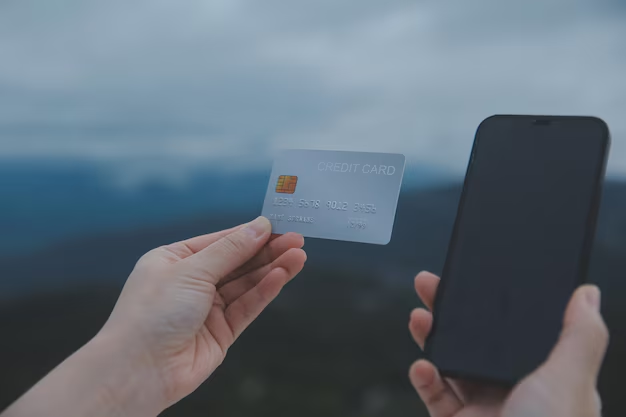Discover Cards: Are They a Good Fit for Your Wallet?
If you're considering applying for a new credit card, you might have come across Discover Cards. With so many options available, it's important to understand what makes Discover unique and whether it's the right choice for you. In this guide, we'll delve into various aspects of Discover Cards, providing you with a comprehensive view to help you make an informed decision.
Understanding Discover Cards
What Are Discover Cards?
Discover is a financial services company that offers a range of credit card products. Unlike many other credit card issuers, Discover originated as a part of the Sears Corporation and later became an independent entity. Over the years, Discover has built a reputation for its customer-centric approach, often setting industry standards with its rewards and service offerings.
Benefits of Discover Cards
1. Cashback Rewards
Discover Cards are well-known for their cashback rewards. Cardholders can earn a percentage back on their purchases, which can be redeemed for statement credits, gift cards, and more. This feature makes it appealing for individuals who want to earn rewards on everyday purchases.
2. No Annual Fees
Most Discover Cards come without an annual fee, making them accessible for those who want to avoid extra charges.
3. Introductory Offers
Discover often provides introductory offers, such as 0% APR on purchases and balance transfers for a set period. These offers can be beneficial if you plan to make large purchases or transfer existing balances from other cards.
4. Freeze It® Feature
Security is a top priority for Discover. Their Freeze It® feature allows cardholders to freeze their account in case they misplace their card, adding an extra layer of security without disabling automatic bill payments.
Who Can Benefit from Using a Discover Card?
Students
Discover offers specialized student credit cards that provide cashback and help build credit history. Students can also enjoy rewards for good grades, incentivizing responsible credit management while rewarding academic achievements.
Frequent Shoppers
Discover's cashback program is particularly appealing for frequent shoppers. With rotating categories offering higher cashback percentages, cardholders can maximize their rewards by planning their spending around these categories.
Balance Carriers
If you tend to carry a balance, a Discover Card with 0% introductory APR can ease your financial burden, allowing you to pay down your balance without accruing interest for a limited time.
Potential Drawbacks of Discover Cards
Limited Acceptance
While Discover Cards are widely accepted across the United States, international acceptance can be limited compared to Visa or MasterCard. This is a consideration if you travel frequently or plan to use your card abroad.
Rotating Categories
Discover's cashback categories change quarterly, which can be both a benefit and a drawback. While it allows for increased cashback in certain categories, it requires cardholders to stay informed and adjust their spending habits accordingly.
Foreign Transaction Fees
Although some cards may not charge foreign transaction fees, this isn't a universal feature across all Discover credit cards, potentially adding costs for international transactions.
Comparing Discover with Other Cards
Discover vs. Visa and MasterCard
Visa and MasterCard are accepted globally and are more likely to be recognized at international merchants. However, Discover often provides more generous rewards structures, and no annual fees, which could make up for its relatively limited acceptance.
Discover vs. American Express
Both Discover and American Express offer robust rewards programs and superior customer service. However, American Express might have higher annual fees on some of their cards, whereas Discover maintains a no annual fee policy on most of its offerings.
Discover vs. Other Cash Back Cards
Many card issuers offer cashback options, but Discover distinguishes itself with features like no annual fees and various customer-friendly policies. It's crucial to assess your spending habits to choose the best cashback card.
Tips for Maximizing Your Discover Card Benefits
Set Up Account Alerts
Take advantage of Discover’s account alert system to stay on top of payment due dates and cashback offers without overwhelming your budget.
Use the Discover App
Utilizing the Discover app can simplify managing your finances by giving you real-time access to your account, rewards, and spending habits.
Take Advantage of Rotating Categories
Stay updated with Discover's rotating cashback categories. You can increase your rewards by aligning your purchases according to each quarter’s featured categories.
Redeem Cashback Strategically
Opt to redeem your cashback when it can provide maximum value, such as during sales or promotions offering bonus redemption rates.
Summary: Quick Consumer Tips for Discover Cards
🔍 Explore Cashback Opportunities: Identify your spending patterns to choose a card that aligns with your lifestyle. Look for rotating categories that might offer higher cashback during certain months.
🌐 Consider Usage: If you travel internationally, consider carrying an additional card to ensure global acceptance.
🔄 Monitor Offers: Keep an eye on introductory and rotating offers. Switching up spending habits can maximize benefits.
🛡️ Activate Security Features: Use features like Freeze It® to safeguard your account when not in use.
🧩 Leverage No-Fee Benefits: Enjoy peace of mind without worrying about annual fees on most Discover Cards.
Closing Thoughts
Discover Cards present a compelling choice for savvy consumers interested in cashback rewards and exceptional customer service. By understanding how to leverage its unique offerings and fitting it into your financial picture, you can enjoy the numerous advantages while being mindful of its limitations. Assess your lifestyle, spending habits, and potential travel plans to determine if a Discover Card aligns with your financial goals and preferences.

Related Topics
- Are Discover Card Accepted Everywhere
- Are Discover Credit Cards Good
- Can Discover Card Be Used Internationally
- Can I Use Discover Credit Card Internationally
- Can I Use My Discover Card At An Atm
- Can I Use My Discover Card Internationally
- Can You Use Discover Card In Europe
- Can You Withdraw Money From Discover Credit Card
- Does Amazon Accept Discover Card
- Does Amazon Take Discover Card
